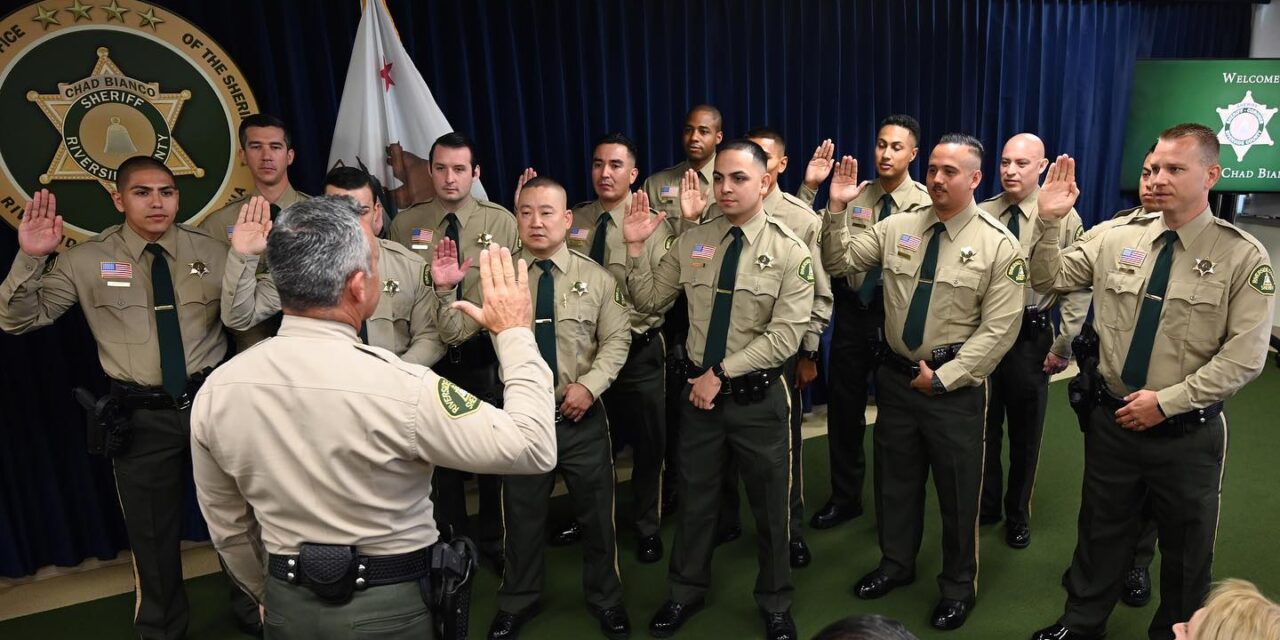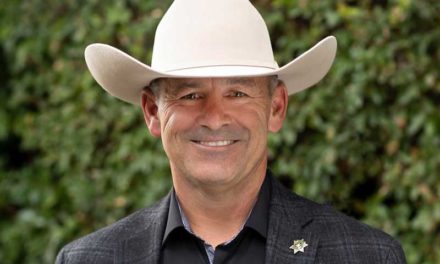2023’s Best & Worst States to Be a Police Officer
With President Joe Biden’s State of the Union address calling for law enforcement officers to receive better training and be held to higher standards, the personal-finance website WalletHub today released its report on 2023’s Best & Worst States to Be a Police Officer.
In order to determine the best states to pursue a career in law enforcement, WalletHub compared the 50 states and the District of Columbia across 30 key indicators of police-friendliness. The data set ranges from the median income for law-enforcement officers to police deaths per 1,000 officers to state and local police-protection expenses per capita.
Life & Work for Cops in California (1=Best; 25=Avg.):
- 30th – Law-Enforcement Officers per Capita
- 8th – Median Income for Law-Enforcement Officers (Adjusted for Cost of Living)
- 7th – Median Income Growth for Law-Enforcement Officers
- 25th – % of Homicide Cases Solved
- 2nd – State & Local Police-Protection Expenses per Capita
- 13th – Police Deaths per 1,000 Officers
Note: “Law-enforcement officers” includes police and sheriff’s patrol officers, detectives and criminal investigators.
Expert Commentary
Do you think police departments should invest more in technology and equipment or focus more on developing soft skills for use in community policing?
“All of these are important, and my answer would depend on what each department needs. Some agencies lack sufficient technology and equipment to do the job well. Some departments have insufficient training and policies associated with community policing. For each department, the recommendation on investing in these options should depend on a careful assessment of its unique needs.”
— Ed Maguire, Ph.D. – Professor; Director, Public Safety Innovation Lab, Arizona State University; Visiting Professor, University of South Wale
“Both of these are important for their own reasons and we do not have to pick one or the other. Cities should invest in technology that helps police officers do their job. For example, body-worn cameras have several uses related to training, liability protection, and job performance. Soft skills are also important when you look at the police’s role in society. Police officers deal with the minutia of daily life but also confront complex tasks. Therefore, it is important to have professional police officers, who can communicate clearly with people and can work on a team. Police officers should also be able to take constructive criticism to heart. Lastly, police officers should be critical thinkers and be able to apply solutions to complex problems.”
— Tom Mrozla, Ph.D. – Assistant Professor, University of South Dakota
What is the long-term outlook for the law enforcement field?
“From an academic view, recruiting new officers is difficult. The ones that are signing up for criminal justice at the college level are the ones who know or believe this is where they want to be. Once in class, the student discovers more about the criminal justice field and careers change to a different section of criminal justice or the student gets even more excited about their choice. The current climate that we see in the media is not persuading these students to not go into criminal justice.”
— Jack Bieger – Assistant Professor, Montana State University-Northern
“According to the U.S. Department of Labor (2023), overall employment in protective service occupations, including law enforcement, is projected to grow by 2 percent over the next decade. This translates to about 72,600 new jobs in the next ten years, in addition to approximately 421,500 openings each year projected to come from growth and replacement needs.”
— Kenneth Christopher, DPA, CPP – Professor; Academic Program Director, B.S. and M.S., Homeland Security and Emergency Management, National University
What measures should police undertake to improve relationships with the community, especially in minority communities?
“Police need to invest in a variety of measures to address these issues. First, they need to do the challenging but important work of determining if there are racial disparities in their communities. If so, those need to be addressed with urgency. More generally, police need to invest in evidence-based training and policies on communicating with these communities, engaging in genuine dialogue in which police leaders listen to the perspectives of people in these communities to understand their view of policing. In some cases, minority communities feel both under-protected and over-policed. We recently did a research project on the statements issued by law enforcement leaders following the deaths of unarmed African-Americans due to police use of force. In many cases, there were no statements issued at all. In cases where law enforcement leaders issued statements about these incidents, the statements often lacked empathy, both for the family of the deceased as well as the African-American community more generally. The way police leaders communicate with minority communities is vital for shaping the nature of their relationships. Often those communications are one-directional, do not involve genuine listening, and lack empathy. Repairing these relationships will begin with skillful, genuine, empathetic communication.”
— Ed Maguire, Ph.D. – Professor; Director, Public Safety Innovation Lab, Arizona State University; Visiting Professor, University of South Wales
“The police should do what has empirical support in reducing crime and improving relationships with the public. Strategies like problem-oriented policing, community policing, intelligence-led policing, and smart policing can be employed on various issues to improve the quality of life in minority communities. Having citizens participate in the policing process is also important. Providing feedback, opening up lines of communication, and recognizing wrongdoing help improve relationships. Cities should also invest in infrastructure like education, housing, and public works to improve quality of life and reduce the disparities we see there. Many issues are systemic and should be treated as such.”
—Tom Mrozla, Ph.D. – Assistant Professor, University of South Dakota
For the full report, please visit:
https://wallethub.com/edu/best-states-to-be-a-cop/34669
Image Sources
- Deputy Recruits: RSO







